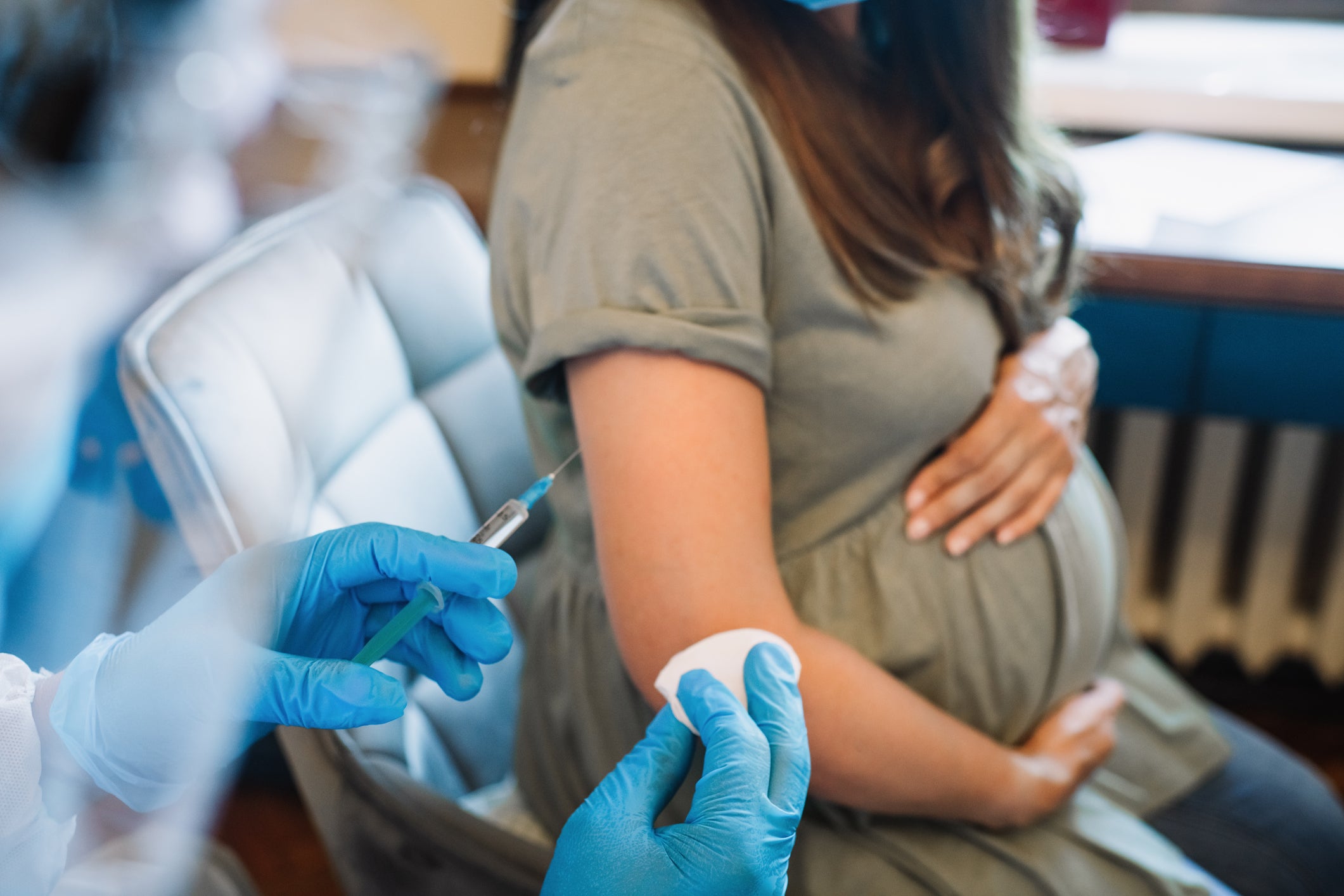Vaccine plea as three more babies die from whooping cough
The deaths come amid a sharp rise in cases.

Pregnant women are being urged to get the whooping cough vaccine after three more babies died from the disease in England.
Since January there have been 4,793 confirmed cases of whooping cough. This compares with 858 cases in the whole of 2023, according to UK Health Security Agency figures (UKHSA). In April this year, the latest figures available, there were 1,888 cases.
A total of eight babies have died from the disease since the start of the year amid a rapid rise in cases.
Between January and the end of April, some 181 babies under the age of three months were diagnosed with whooping cough. Around half of the latest cases have been recorded in people aged 15 years or older and 26% among children aged between 10 and 14 years.
The bacterial infection, also known as pertussis, affects the lungs and breathing tubes.
Whooping cough can be called the “100-day cough” because of how long it can take to recover from it, and it spreads very easily.
Pregnant women are being urged to take up the offer of the whooping cough vaccine so they can pass on protection to their babies, which should last until they are old enough to get vaccinated themselves.

Dr Gayatri Amirthalingam, consultant epidemiologist at UK Health Security Agency, said: “Our thoughts and condolences are with those families who have so tragically lost their baby.
“With whooping cough case numbers across the country continuing to rise and sadly the further infant deaths in April, we are again reminded how severe the illness can be for very young babies.
“Pregnant women should have a whooping cough vaccine in every pregnancy, normally around the time of their mid-pregnancy scan (usually 20 weeks). This passes protection to their baby in the womb so that they are protected from birth in the first months of their life when they are most vulnerable and before they can receive their own vaccines.
“The vaccine is crucial for pregnant women, to protect their babies from what can be a devastating illness.”
Health officials describe whooping cough as a “cyclical disease”, which means it peaks every few years. With whooping cough this is every three to five years.
The last big increase was seen in 2016, but cases dipped to very low numbers during the coronavirus pandemic which means the current peak is “overdue”, experts have said.
The impact of the pandemic means there is reduced immunity in the population.
UKHSA also said vaccine uptake has fallen in recent years – both the jabs for pregnant women and children.
The NHS recommends all pregnant women are vaccinated against whooping cough between 16 and 32 weeks.
Immunity from the jab passes through the placenta to protect newborn babies in their first weeks of life.
When a baby is eight weeks old they are offered the six-in-one vaccine, which includes immunisation against whooping cough.
The second dose of the vaccine is offered at 12 weeks and the third is offered at 16 weeks.
When children are three years and four months they will be offered the four-in-one pre-school booster, which protects against pertussis.
Professor Sir Stephen Powis, NHS England’s national medical director, said: “With cases of whooping cough continuing to rise sharply across the country, and today’s figures from UKHSA sadly showing further infant deaths, it is vital that families come forward to get the protection they need.
“NHS teams are working hard to ensure local vaccination services are easily accessible for all through GP practices and some maternity services, and we urge all pregnant women to get vaccinated to help protect their babies in the first few weeks of their life – parents should also ensure that their children get protected in the first few months after birth as part of the routine NHS vaccine offer.
“If you or your child have symptoms of whooping cough, ask for an urgent GP appointment or get help from NHS 111.”
UKHSA said the first signs of whooping cough are similar to a cold, such as a runny nose and sore throat, but after about a week, the infection can develop into coughing bouts that last for a few minutes and are typically worse at night.
Young babies may also make a distinctive “whoop” or have difficulty breathing after a bout of coughing, though not all babies make this noise which means whooping cough can be hard to recognise.
Bookmark popover
Removed from bookmarks